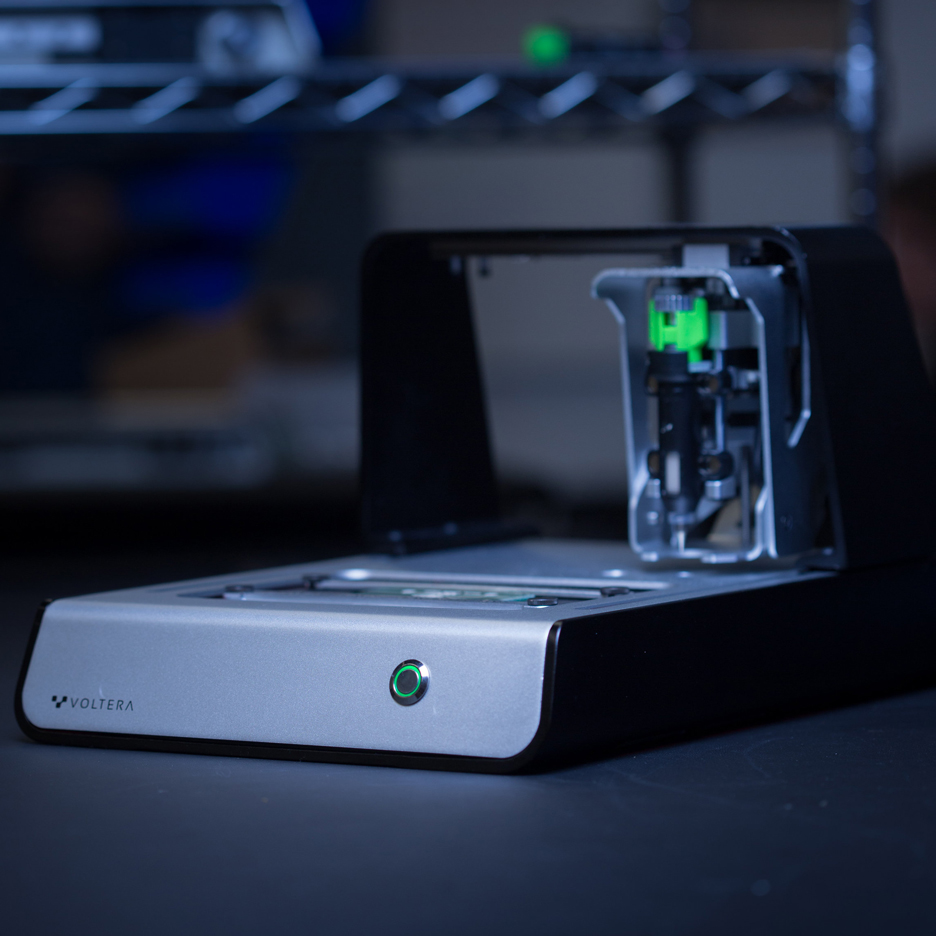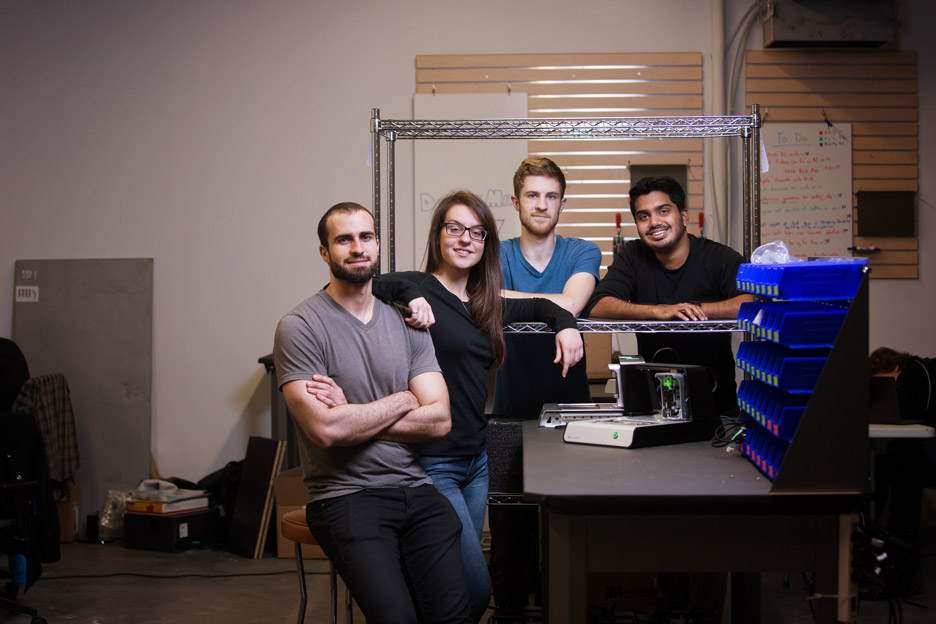Laptop-sized Voltera V-One circuit-board printer wins 2015 Dyson Award
A portable circuit-board printer that could dramatically reduce prototyping and production time for designers has been awarded the 2015 international James Dyson Award.
Developed by a team of four Canadian engineering students from the University of Waterloo, the Voltera V-One works on similar principles to a 3D printer and only takes a few minutes to produce printed circuit boards (PCBs).
"The Voltera V-One team is made up of four impressive young graduates," said British inventor James Dyson, who founded the annual student design and engineering prize. "Their solution makes prototyping electronics easier and more accessible – particularly to students and small businesses."
"But it also has the potential to inspire many more budding engineers," he added. "Something I am very passionate about."

PCBs are used in a range of electric devices, from consumer electronics to medical devices, to connect components together.
Usually the expense and the amount of time it takes to produce PCBs slows designers and engineers from prototyping and launching new products. It's a particular issue for small business and startups, who may lack the financial necessities.
The Voltera V-One lays down conductive and insulating inks to create a two-layer circuit board. It also dispenses solder paste, allowing components to be added.
The Voltera team launched the printer on Kickstarter in February 2015, and raised $502,310 (£328,000) in backing. Machines are due to start shipping by the end of 2015 and the team will also receive £30,000 in award money to further develop the design.

"When we first started the company, we spoke to many experts who told us we were too ambitious and that it was impossible to create a tool that could effectively prototype circuits," said team member Alroy Almeida. "We took that as a challenge."
Runners up for this year's award include a system of beads containing microorganisms that could be deployed in water to prevent algal bloom, and a lightweight scuba set that lets users dive deeper than normal.
This year's UK James Dyson Award was given to prosthetics start up Open Bionics, which developed a robotic hand that could be a cheaper and more easily produced alternative.
Previous winners of the international James Dyson Award include a fishing net that filters out young and endangered fish, and an inflatable baby incubator.